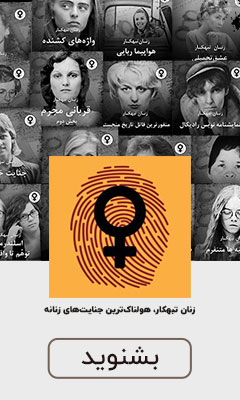- 1 سال پیش
- 76
- 12:48
اپیزود پنجم جادهٔ ابریشم: باب الزاهد و ابن عرس از کلیله و دمنه
Silk Road Podcast | پادکست جاده ابریشم
Greetings.
Welcome to episode five.
This time, we will narrate one story of Kalīla wa-Dimna (Arabic: كليلة ودمنة), a renowned collection of fables. The book comprises fifteen chapters, each featuring various fables with animal protagonists. Notably, a lion serves as the king, accompanied by his servant ox, Shetrebah. The titular jackals, Kalila and Dimna, play dual roles as both narrators and central characters.
Kalīla wa-Dimna is based on the Sanskrit text Pañcatantra from around 200 BC. It was translated into Middle Persian in the sixth century by Borzuya. In the eighth century, the Persian Ibn al-Muqaffa’ translated it into Arabic. In the 18th century, King Vakhtang VI of Kartli translated it from Persian to Georgian. His translation, later edited by Sulkhan-Saba Orbeliani, has been used to help determine the possible original text, alongside an earlier unfinished translation by King David I of Kakheti.
Embark on this journey with us and let us explore the Silk Road together.
سلام
به پنجمین اپیزود از جادۀ ابریشم خوش اومدید
اینبار یک حکایت کوتاه از کلیله و دمنه رو برای شما بازگو میکنیم.
کلیله و دمنه کتابی پندآمیزه که در اون حکایتهای گوناگون، بیشتر از زبان حیوانات، نقل شده. نام کتاب از دو شغال به نام «کلیله» و «دمنه» گرفته شده که قصههای کتاب از زبان اونها بازگو میشه. اصل داستانها در هند و در حدود سالهای ۵۰۰ تا ۱۰۰ پیش از میلاد رخ میده
لطفا ما رو در شبکههای اجتماعی دنبال کنین و با معرفی کردن ما به دوستانتون به رشدمون کمک کنین و ما رو به ادامه مسیر امیدوارتر
گویندگان این قسمت:
بخش فارسی: ریحانه دهداری
بخش فرانسوی: ریحانه دهداری
بخش انگلیسی: حسن ابراهیمی
کارگردان هنری: حسن ابراهیمی
تصویرسازی: آزاده حقشناس
تدوین و صداگذاری: وحیدرضا ابراهیمی
ضبط شده در استودیو معاونت فرهنگی دانشگاه شیراز با مدیریت کامران معتمدنیا
موسیقی ابتدایی پادکست:
https://youtu.be/2X16HWbr87A?si=1OccTr54a95jbrVf
اولین نفر کامنت بزار
Greetings.
Welcome to episode six.
<...- 56
- 1 سال پیش
Greetings.
Welcome to our second episode...
- 154
- 1 سال پیش
Greetings.
Welcome to our first episode....
- 90
- 1 سال پیش
تمامی حقوق این وبسایت متعلق به شنوتو است

